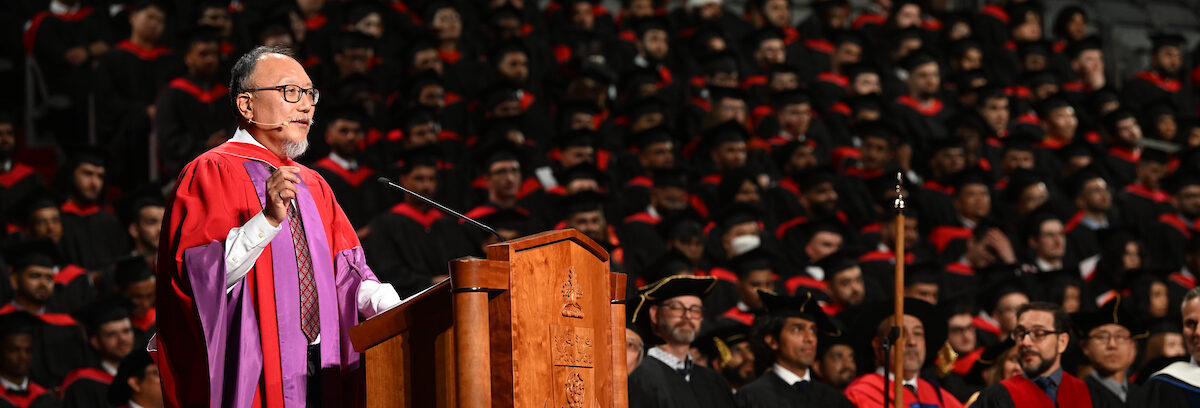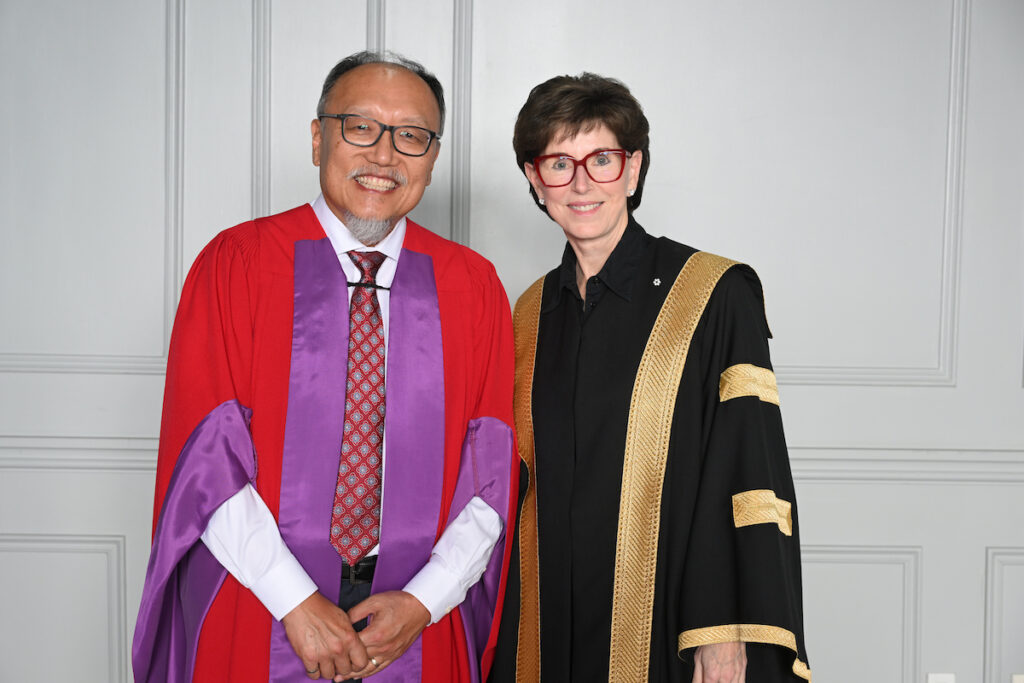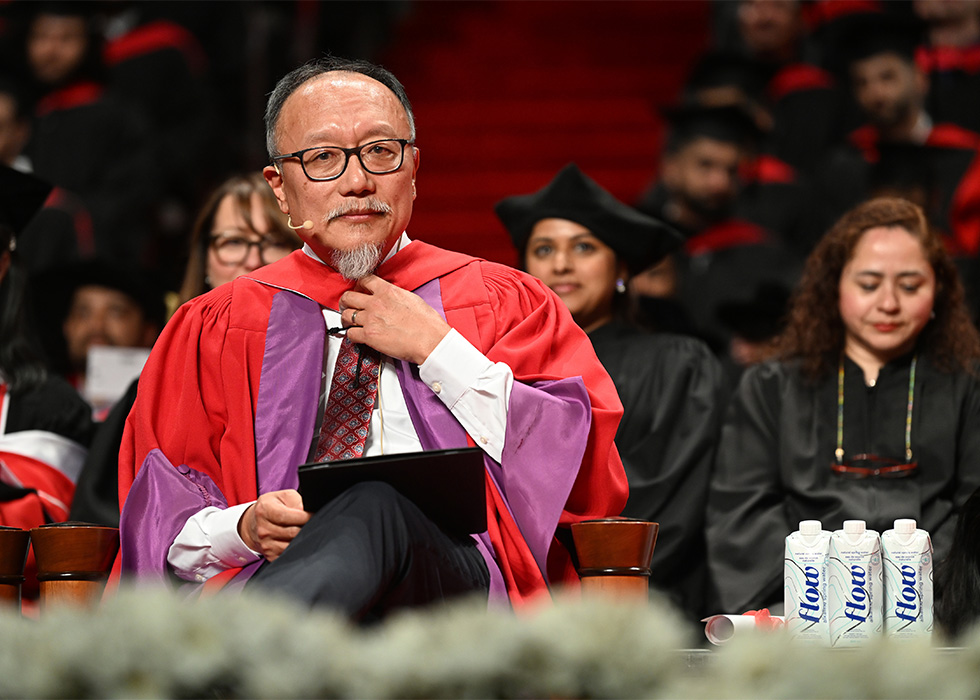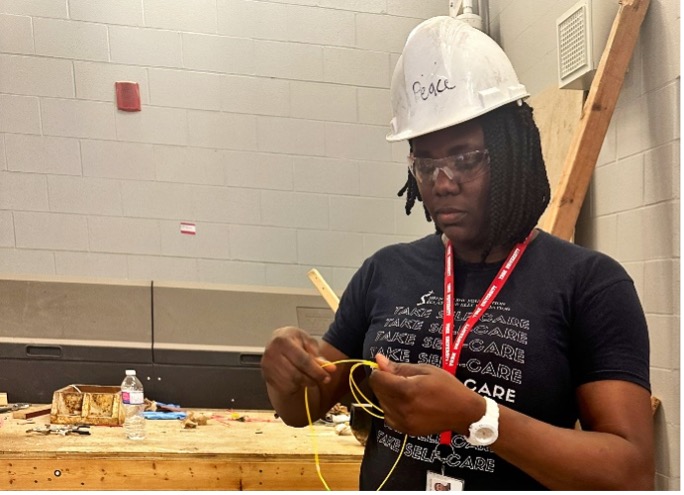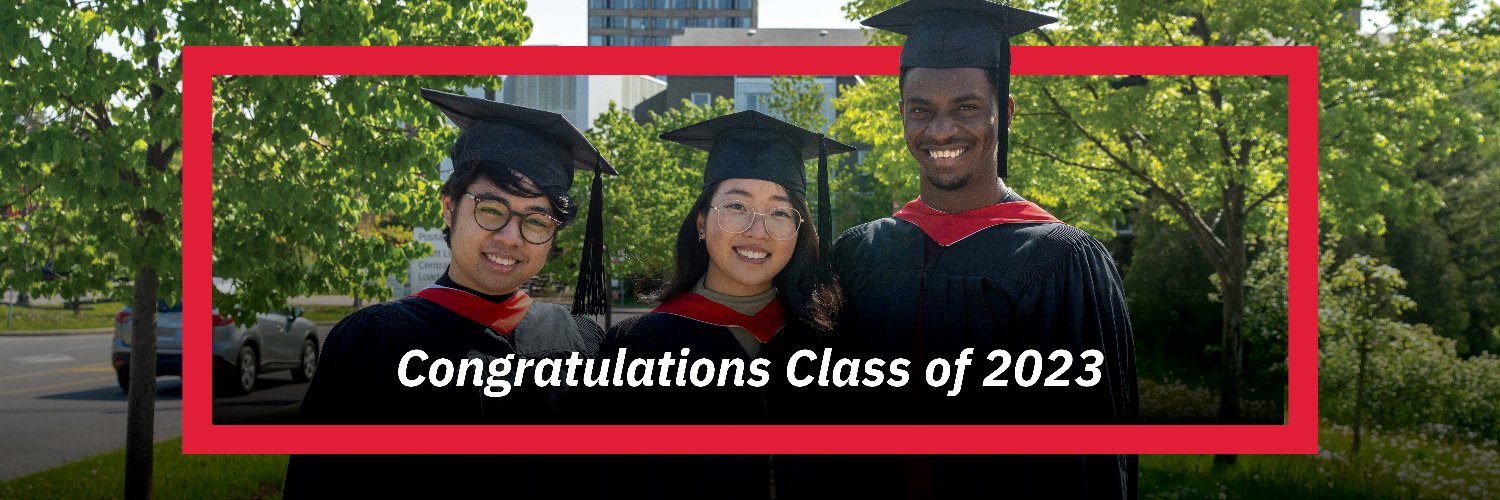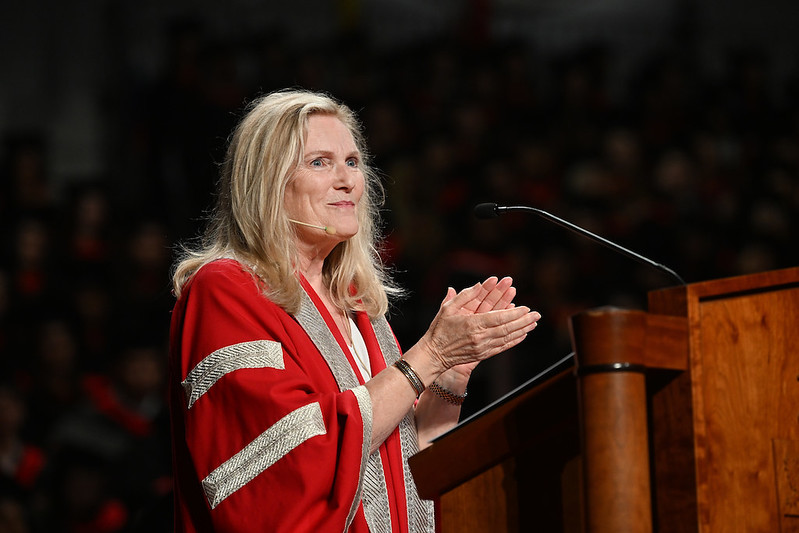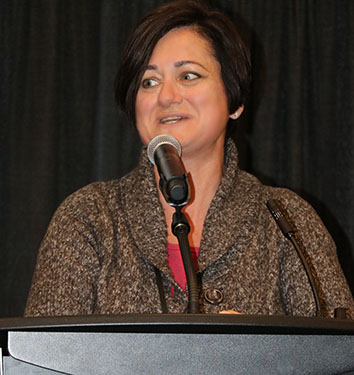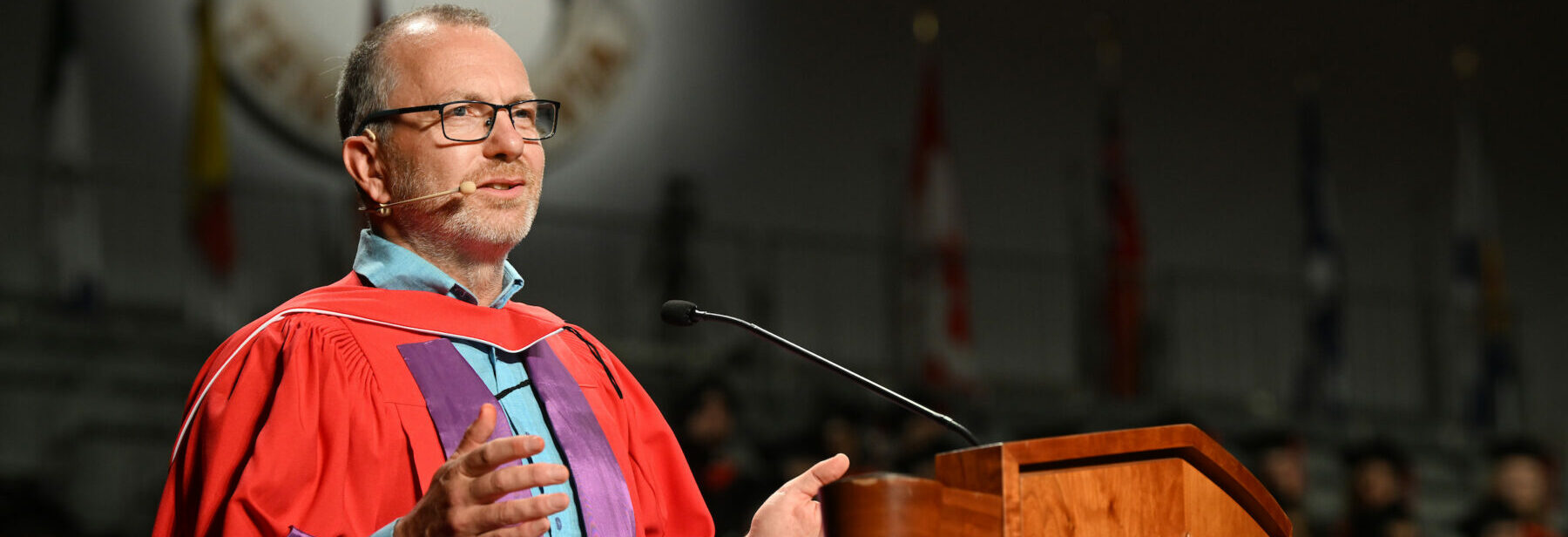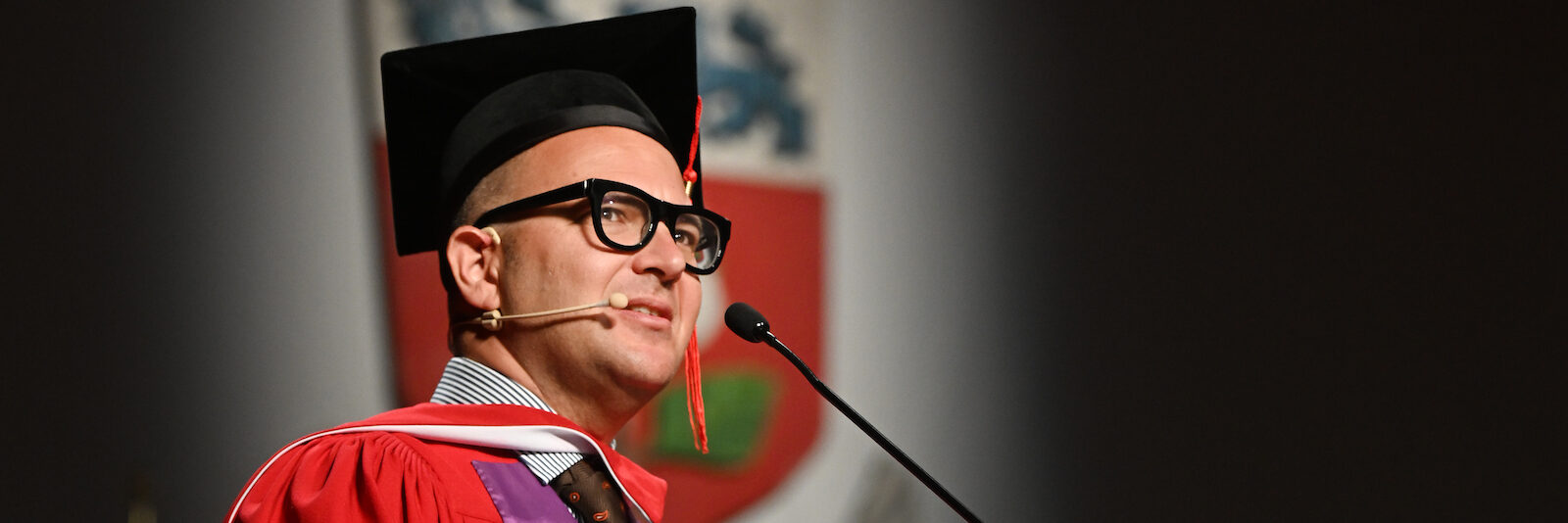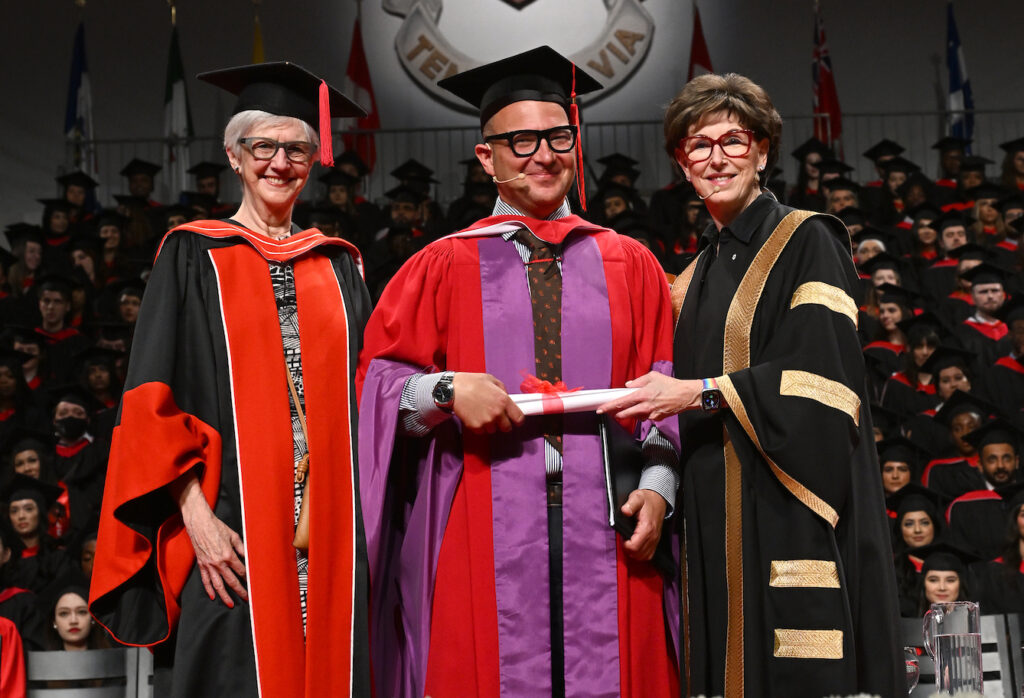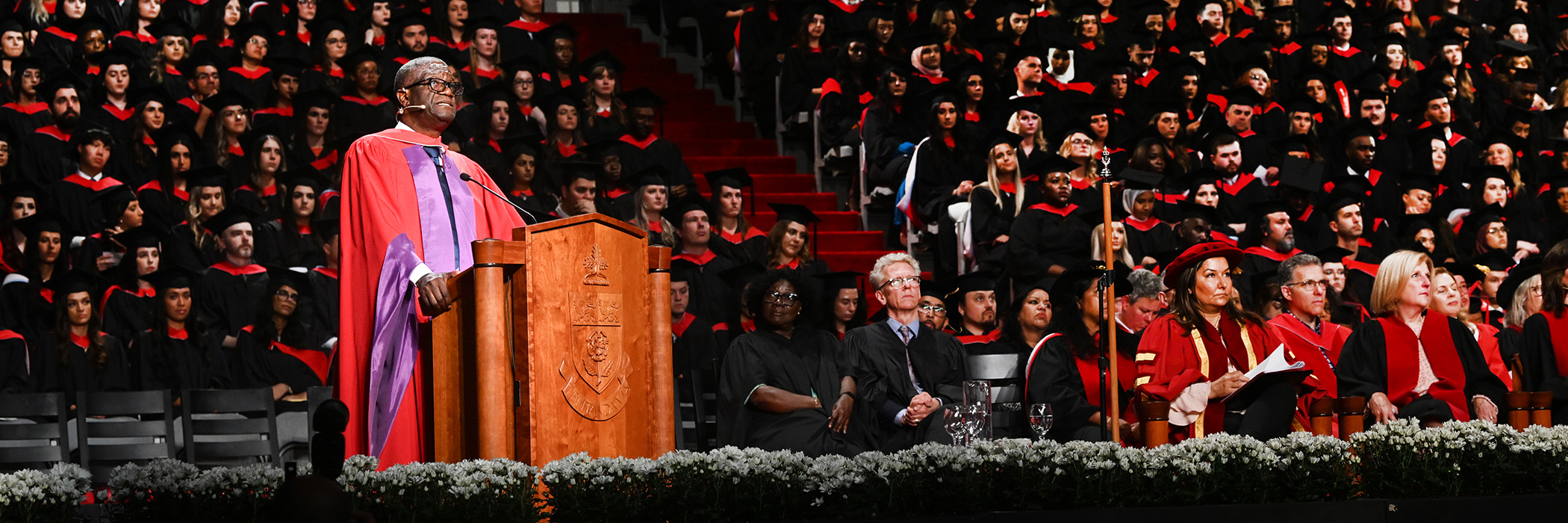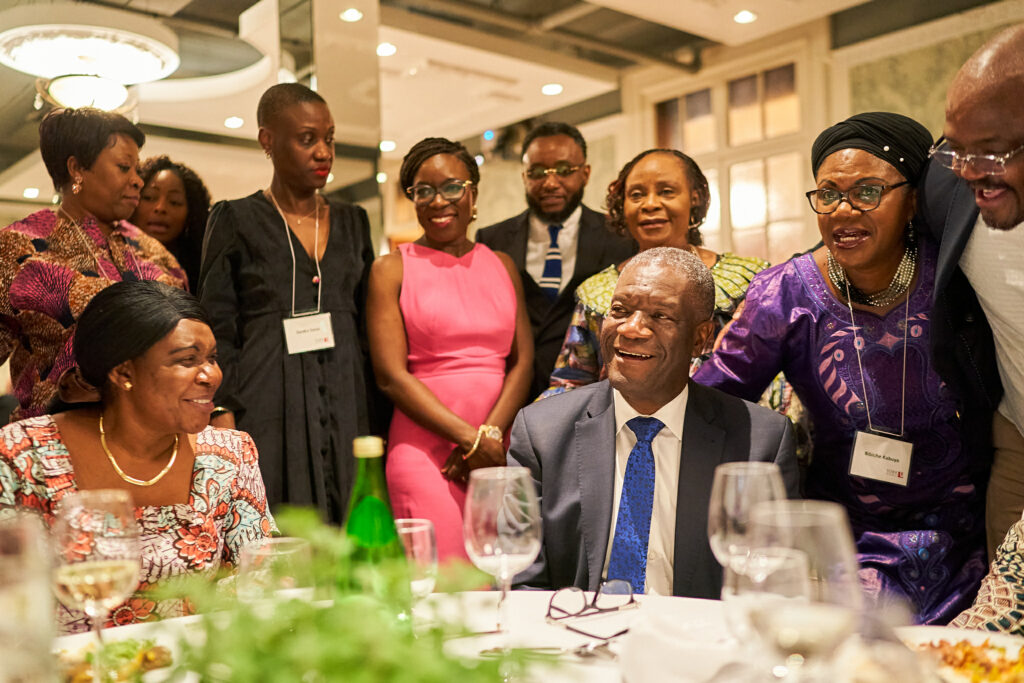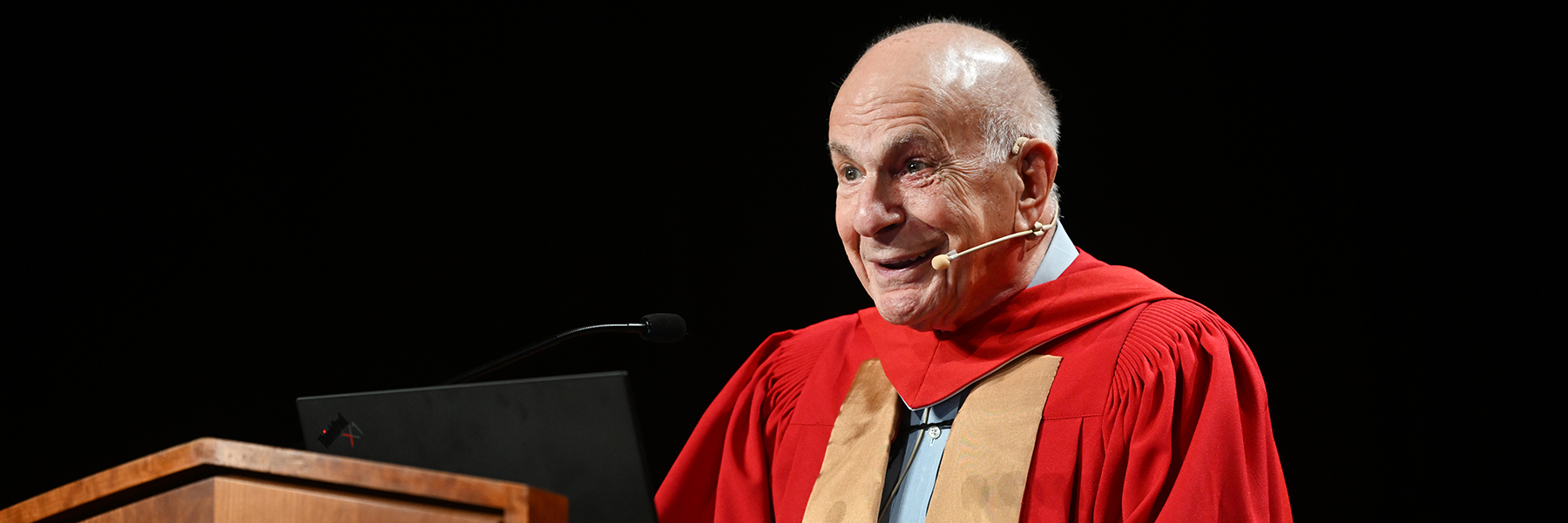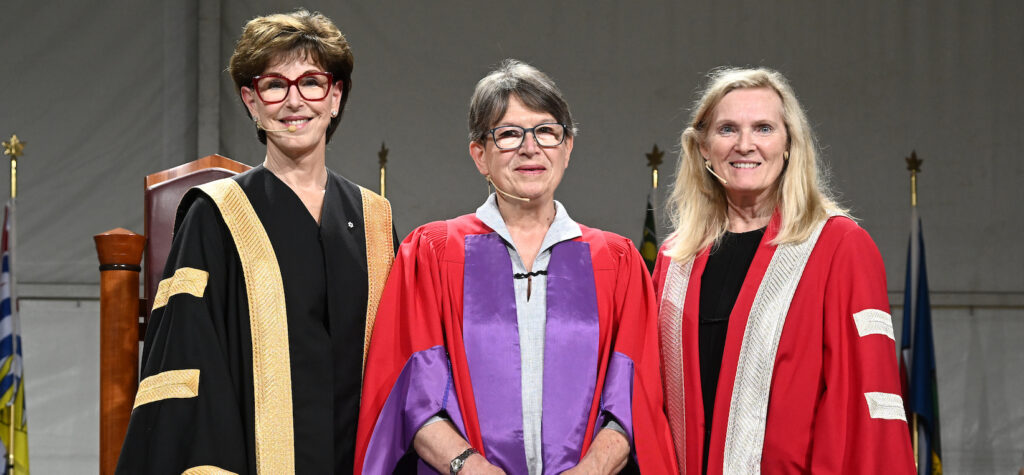During the June 22 convocation for York University’s Faculty of Science, longtime CBC filmmaker and producer Nancy Archibald urged graduands to lend their newly gained knowledge and fresh perspectives to righting the future.
At the end of her address to graduands and proceeding the introduction of Archibald, Alice Pitt, interim vice-president of equity, people and culture at York, issued a challenge. “I want to end my remarks by encouraging each of you to think about what matters to you and what contribution do you want to make the world.”

Those words anticipated the speech delivered by Archibald, the recipient of an honorary doctor of laws degree, who has made significant contributions to the world’s understanding of the world and, especially, the threats it faces. Over a 35-year career as a filmmaker with the CBC, notably the long-running series The Nature of Things, she has made over 40 science and nature documentaries, as well as produced more than 60 films, many with the goal of raising awareness of environmental issues before others in the media did.
During her speech, Archibald recounted her journey and how it began at 21, when an aunt passed and left her $500 in her will. Archibald decided to leave for Europe to see more the world. Six years later she came home, her life changed by travel, and began looking for work.
“I’d always wanted a job I could look forward to and I thought was worth doing. That was important,” she said. She got one at the CBC, soon making programs meant to educate the public about a variety of scientific subjects, including chaos theory, human development from birth to death, aspects of evolution and astronomy. Along the way, she found herself nurturing a budding interest: “I was finding my way to what I passionately cared about: nature and the issues surrounding it,” she said.
Among one of her most formative experiences, was when she and her crew traveled to the Amazon in the 1990s to do a story on the burning of the rainforest. Before her arrival, she had expected – despite the destruction – to see some remnants of the rich ecosystem that rainforests have to offer. She was in for a shock. “We never saw rain forest, although we were where it was meant to be. We saw blackened trees and trees on fire,” she said. They saw too hundreds of local and tribal people who were impacted. One town had attempted to replace their missing rain forest with skinny trees and pots.
The film resulting from the experience of capturing the ecological devastation in the Amazon was called The Road to the End of the Forest and when it aired, thousands of letters came in from viewers shocked, as well as wanting to know more and what they could do. Since then Archibald – in and outside of her work – has raised awareness around the threats to the world’s environments.
As she neared the end of her speech, Archibald encouraged graduands to seek out mentors and collaborators – something she said she benefited greatly from. “Continuing to learn through the lives and experiences of people you admire is enriching. Seeking advice from people you can believe and who give guidelines generously is a good habit,” she said.
A female trailblazer, as the first and only female executive producer at the CBC from 1973 to 1981, Archibald also issued an important call to graduands to protect the rights of not just women, but those afforded by democracy as a whole. “Keep an eye on your freedoms. For women, because they’re recent, but for everyone else, too. We all must take notice and keep watch, because what we’re seeing right now in North America and Europe is a strong movement away from the kind of democracy we’ve taken for granted and that we thought would last forever. And when democracy goes, freedoms can shift,” she says.
Archibald ended with a moment of optimism and well wishes for the graduating class. “The work is waiting. You have new eyes. You’re armed now with critical thinking mind and knowledge. And if you use them well – to speak up, to help forge new ways of living, a more humane and more equitable world – you will be people living meaningful lives. I wish you adventure and fulfillment on this wondrous planet. Its gobsmacking beauty will sustain and inspire you if you let it and make you want to live differently to bring it back, to protect it, and allow it – and you – to thrive.”



